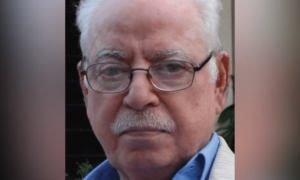AS the BNP’s Sardar Akhtar Mengal marched towards Quetta last week, the idea recirculated: establish a truth and reconciliation commission for Balochistan. Political commentators, journalists and activists alike rightly highlight that at the core of the Balochistan crisis is the state’s lack of acknowledgement that legitimate grievances underpin militancy and anti-state violence. It is a truth easily accepted in other contexts but not entertained closer to home. Not surprisingly, then, a truth and reconciliation process is often cited as a way out of the quagmire. But would it work?
Truth commissions are established when rampant human rights violations have occurred, typically in a conflict or authoritarian context, and there is a need for a national reckoning. Truth commissions aim to uncover, investigate, document and ultimately establish a consensual version of the ‘truth’ of what has happened.
The findings of truth commissions are usually based on wide-ranging interviews with affected communities, comprehensive data collection, investigations and policy and legal reviews. These are meant to pave the way for reconciliation through a variety of means, including reparations, institutional and structural reforms to address gaps that enabled rights violations or conflict, inclusive policymaking, and legal recourse. The outcomes of truth and reconciliation proceedings seek to be both holistic and healing, and may also involve memorials for those affected and prosecutions of key perpetrators to ensure accountability to reinstate trust in the system.
It is not far-fetched to think that such a process is now needed in Balochistan — after all, the first truth commission over four decades ago was the Argentinian National Commission on the Disappearance of Persons, a topic that is a key driver of metastasising Baloch grievance. Between 50 to 70 truth commissions have been established since Argentina’s bold step (depending how you count them) on varying types of issues. In 2022, PPP and PML-N ministers supported the idea of such a commission.
Will a truth and reconciliation commission succeed?
Sadly, the approach is unlikely to succeed. Truth commissions typically function in post-conflict or post-authoritarian contexts. There are calls for a truth commission to be established in Bangladesh to address the corruption and human rights violations perpetrated by Sheikh Hasina and her Awami League.
Unfortunately, Balochistan is far from being post-conflict at present. Post-Jaffar Express, the state has widened the crackdown to encompass anyone perceived to inhabit the same spectrum of grievance as the BLA, including the peaceful protesters of the Baloch Yakjehti Committee. On the other side, as Mengal keeps warning, the brutal crackdown and extractive mentality towards the province threaten to radicalise a broader segment of the Baloch population.
The government could use a truth commission to try and stop this violent spiral, but it would be compromised by its own weakness and complicity. Truth commissions are created through legal instruments that define their mandate, composition, objectives and methodology. Our government today, after the 2024 elections and the inexcusable democratic concessions of the past year, hardly has the public trust to mandate a truth commission.
Then there’s the problem of information gathering. Truth commissions gather ‘truth’ from all affected stakeholders and all available sources with an eye to better documenting what has passed. How can such a process succeed in an age of disinformation and surveillance?
Balochistan has been subject to media blackouts, internet shutdowns and social media surveillance for many years now. The current crisis is unfolding in the wake of the Peca amendment, when any critique of the state and its institutions could result in detentions, jail terms — or worse. No commission, no matter how well-mandated or well-intentioned, could establish truth under these conditions.
Ultimately, truth commissions can only work when all stakeholders genuinely desire an end to violence and rights violations, and confidence that past sins cannot be repeated. This premise does not yet hold true in Pakistan. Key stakeholders in this conflagration are not interested in making amends. The incentives are not yet great enough to warrant a drastic rewriting of history, a privileging of distributive justice, and a holding to account for human rights violations. The pain is not yet equally felt on all sides.
But we should learn from the tragedy of our own history, and from others. Grievances grow, they morph, they consume all else. From Libya to Sudan, we have examples of what a worst-case scenario could look like, and it is not a future any of us would wish upon our country. It’s time to look ahead to meaningful reconciliation.
The writer is a political and integrity risk analyst.
X: @humayusuf
Published in Dawn, March 31st, 2025











